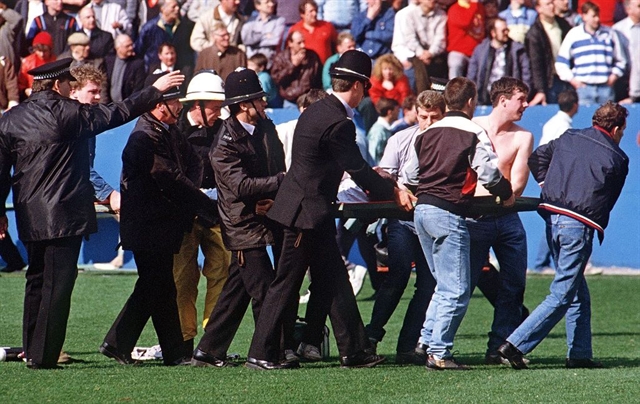 Sports
Sports

April 15, 1989 was the darkest day in football history.

by Paul Kennedy
Thirty years ago this week I was working at Great Homer Street Market in Liverpool. It was more commonly known among locals as 'Greatie'.
I was 16 years old and it was my first job. I’d be there on a Saturday morning at the crack of dawn selling bedding all day and I’d walk away at the end of my shift with 20 GB pounds. On a good day, more.
On Saturday April 15, 1989 I had requested the day off as Liverpool were playing in the FA Cup semi-final at the Hillsborough Stadium in Sheffield.
Nottingham Forest were the opponents and like all Liverpool fans at the time, I sensed a victory.
But at 16 living in Liverpool in 1989, money wasn’t that easy to come by. A close family member made a suggestion that at the time, I didn’t like.
He told me not to go to the semi-final. Instead work, earn your £20, and use the money to pay towards a day out at Wembley for the final itself because it really was that much of a forgone conclusion that Liverpool would win.
Against my own better judgement I took his advice. It was a good job really because chances are if I’d have gone to that game, as a skinny 16-year-old kid, I wouldn’t be around today to write this column.
April 15, 1989 was the darkest day in football history.
It was long before smartphones so I found myself working on the market and tuning into the commentary using a small FM radio.
On the same day, Everton were also playing in the FA Cup semi-final against Norwich City at Villa Park.
But it was the event in Sheffield that changed the history of the beautiful game forever.
The match started, and 10 minutes or so later was stopped for reasons only described on the radio as ‘crowd trouble’.
Remember this was a different period of time, without cell phones, internet, instant news etc. This was, in more ways than one, the dark ages.
For hours we knew nothing other than sketchy reports of one dead, three, six, 15, and so on and so on.
Communication was poor, and we only realised our relatives and friends were safe, relatives and friends I should have been with, when we saw their faces on the TV news standing on the pitch.
Regarding what happened on the day, well there’s enough been written by other people so really it doesn’t need repeating in great detail.
But one thing is for sure, not only were the police and authroities 100 per cent to blame, but their actions in the years that followed were nothing short of abhorrent.
Statements were altered, police notes doctored and the truth covered up by those in the highest of power.
It was only years later that justice finally began to be served. A justice that was fought for with blood, sweat, tears and of course, lives.
I’ve thought about that day a lot. Each and every time I visit Anfield there’s a memorial outside the stadium as a constant reminder of days gone by.
I guess it was fate that I never went. I had a ticket and went to the rearranged replay at Manchester United’s Old Trafford and the subsequent final at Wembley.
Ninety-six people who did go to that game didn’t come home, and it is still staggering to think that 30 years have passed since the Hillsborough disaster.
Despite the passage of time, those who died won’t be forgotten, and their memories will live on for years to come.
I just thank my lucky stars that I wasn’t one of them. VNS